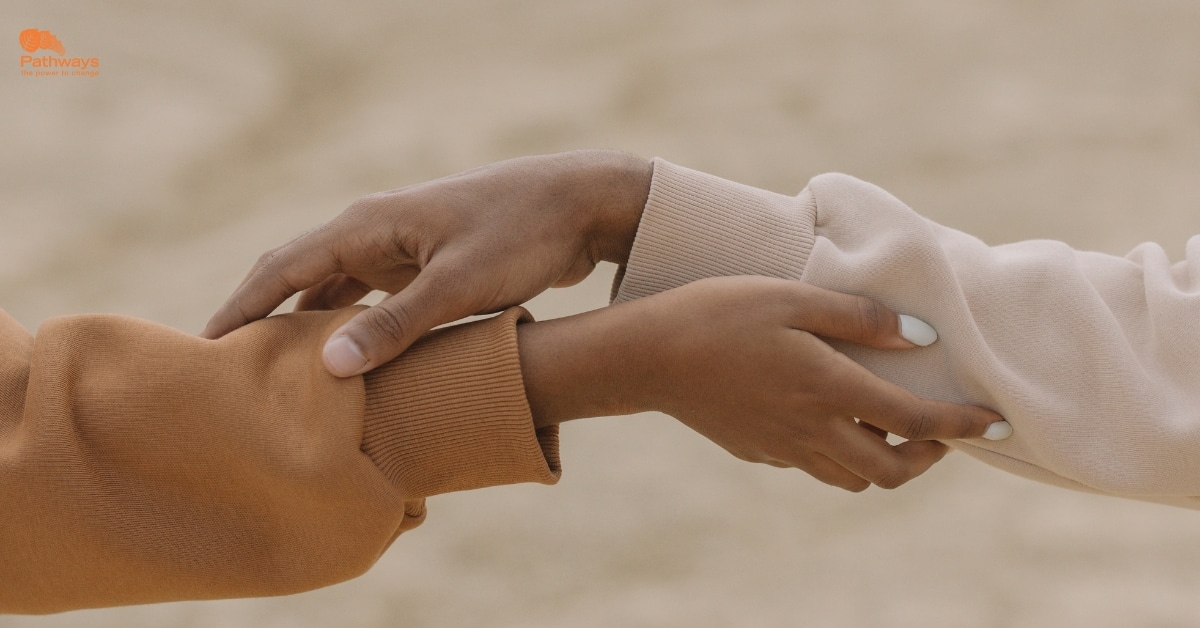When it comes to therapeutic interventions, there are various modalities, each addressing different emotional, behavioral, and mental health needs. While there isn’t one right solution, a combination of evidence-based and holistic approaches can lead to long-term success.
Evidence-Based Approaches
Any type of intervention that falls within this category has been medically or scientifically researched. They are supported by empirical evidence from controlled trials, meta-analyses, or research studies. Because of this, they tend to be outcome-oriented, meaning there is a direct goal of going through one of these therapy approaches. Because of this, there is a greater likelihood of successful treatment outcomes, including increased patient satisfaction and engagement. Here are some of the most well-known evidence-based approaches.
Cognitive Behavioral Therapy (CBT)
Cognitive behavioral therapy is a type of psychotherapy that focuses on changing negative thoughts and behaviors to boost mental health and well-being. With this therapy, patients are taught how to cope with and manage negative thoughts, feelings, and emotions by changing their behaviors. A therapist will work closely with a patient to find the types of behaviors to change based on the patient's emotional state or mindset.
For example, journaling could be used to help process negative beliefs or doubts. Positive self-talk is another technique that can alter how someone perceives themselves, replacing negative thoughts about their body or image with more positive messaging. With continued repetition, these acts can become second nature and help eliminate the negative thoughts that occur in the first place.
CBT is known to treat anxiety disorders, mood disorders, substance use disorders, post-traumatic stress disorder, and other conditions such as irritable bowel syndrome or chronic fatigue syndrome.
Acceptance and Commitment Therapy (ACT)
As the name implies, Acceptance and Commitment Therapy is about embracing and accepting thoughts rather than struggling with them. Life isn’t always butterflies and rainbows. In fact, many patients may have a dismal outlook on life based on their past experiences. With ACT, therapists will work with patients through sex core processes to foster psychological flexibility and improve mental health.
These six processes include: acceptance of thoughts, cognitive diffusion, presence, self-as-context, values, and committed action. Through these steps, patients will likely feel a decrease in depressive or anxious symptoms and can handle difficult experiences on their own in the future.
ACT can treat anything from anxiety disorders to depression to substance use disorders to chronic pain to even workplace stress.
Interpersonal Therapy (IPT)
Interpersonal therapy is a type of psychotherapy that looks to strengthen and improve relationships with others. While CBT focuses on the self, IPT focuses on connections with others. This can be friendships, significant partnerships, familial relationships, professional relationships, or others.
Therapists will work with patients to learn about the relationships that are causing them distress and come up with specific tactics or communication skills to improve upon them. If someone is struggling in their marriage, they may suggest a role-playing scenario to play out different approaches to discussing their dilemmas.
IPT primarily treats depression and related conditions such as major depressive disorder and postpartum depression, as well as anxiety disorders, substance use disorders, trauma, and post-traumatic stress disorder.
Holistic Practices
Holistic practices aim to treat the entire person, the mind, body, and spirit. Rather than narrowing in on a specific symptom, holistic practitioners will take a person’s entire physical and mental well-being into consideration. There are two main categories of holistic practices for therapeutic intervention: mind-body practices and biologically-based practices.
Mind-Body Practices
Anything that falls within this category aims to balance mental and physical health. Mindfulness, for instance, focuses on the present moment instead of thinking about a running to-do list or worrying about what happened yesterday. Through intentional breathwork — deep inhales and exhales or slow breathing techniques — patients can find a sense of inner calmness and peace. This stillness can be felt throughout the body, creating an aura of tranquility.
Another practice that focuses on breathwork in addition to movement is yoga. This ancient practice uses a combination of poses, breathing exercises, and meditation to reduce stress and tension. Regular yoga practitioners can leave a class feeling both energized and reset, ready to take on whatever the day brings.
Biologically-Based Practices
Biologically-based practices use plants and other materials to support overall health. Aromatherapy, for instance, relies on essential oils for therapeutic benefits. The smell of lavender can instantly provide calmness, while orange or lemon can be mood-boosting. Aromatherapy can be used throughout the day to either stimulate or energize the body or calm it. An at-home diffuser can be a relatively inexpensive way to bring this modality into your everyday routine.
Acupuncture is another biological-based practice that involves inserting thin needles to release tension, stiffness, and pain. By accessing and stimulating different points on the body, signals are sent to the brain and spinal cord. This practice is known to release endorphins and act as a natural pain reliever while also reducing inflammation and promoting overall relaxation.
Nutrition-based treatments can also be leveraged as part of a holistic treatment plan. Eating a nutrient-rich diet full of antioxidants, lean protein, whole grains, and healthy fats can set the body up for success. While eating processed fast foods and drinking sugar-filled caffeinated beverages may feel good at the moment, they can lead to a blood sugar spike and subsequent crash. Nutritionists can come up with practical meal plans that can support a patient’s physical and emotional health.


